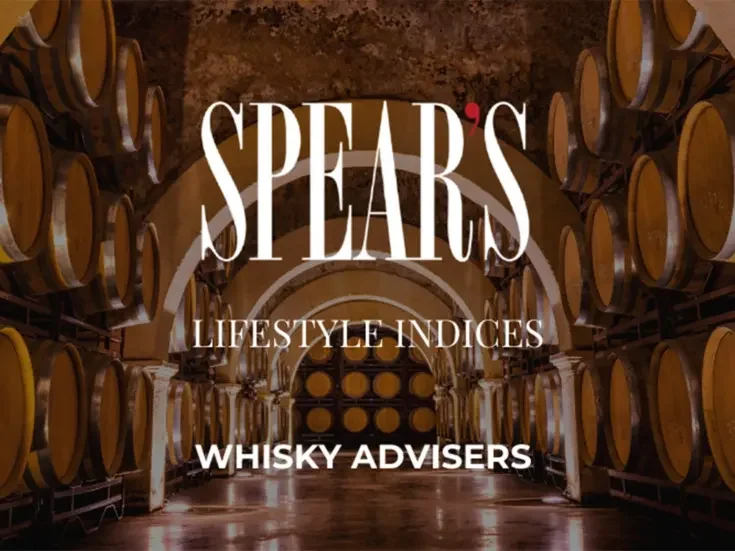
LIGHTNING IN A BOTTLE
Without quite losing its reputation as illicit hillbilly homebrew, moonshine has led a whisky renaissance, says Amy Guttman
‘Moonshiners are united in a solid mistrust of the government,’ distiller Justin King proclaims. He’s the master with the secret recipe for Ole Smoky moonshine, also known as hooch, white lightning or, as the industry calls it, unaged corn whisky.
Diehards say the high-proof distilled spirit should only be called moonshine if produced illicitly, but the legal version, made from corn mash, is leading a whisky renaissance in America. And the mystique of moonshine is part of its popularity. Author and journalist Max Watman, who chronicled the history of it in his book Chasing the White Dog, says the cachet of illegal moonshine is the bit of outlaw it carries, yet without the stigma.
‘You get to dabble on the other side of the law, but your friends, your in-laws, your boss won’t think badly of you for doing so,’ he explains. ‘One can show up with a mason jar of moonshine and get a little frisson out of that, take a quick detour into lawlessness without serious social consequence.’
Commercial distillers large and small are tapping into that. In the last three years, artisan producers in New York, New England, California and other states have been marketing their ’shine to sophisticated consumers driving the push for ‘farm to table’ goods.

Illustration by Cameron Law
‘Throughout America, there are people who want to connect to their sources. They want to eat and drink things that are produced locally, by people they can name, people they might meet. This is true at farmers’ markets as well as liquor stores. That’s a driving force for small-scale distilling,’ says Watman.
Another driving force for the entire moonshine market is the entrance of Jim Beam’s Jacob’s Ghost white whiskey, helping to define this new category.
‘It’s a local point of pride, a big part of eastern Tennessee family tradition,’ says Robert Cremins, a college student from Knoxville. Many in the region identify themselves with moonshine, Cremins says. ‘I grew up hearing stories about moonshine.’
Smoky bandits
In the land that surrounds the lush Smoky Mountains, with their towering white pine trees, moonshine — or whatever you call it — has a rich heritage. Neighbouring states also lay claim to the moonshine tradition, ‘but the one that centres around the Smoky Mountains is the most traditional,’ says Watman, who grew up in Virginia’s Shenandoah Valley.

‘Some regions like southern Virginia clasped on to the historical aspect of moonshine to try to promote it, but it hasn’t become as central to the character of the region as it has with the Smoky Mountains. In eastern Tennessee and the Smokies, you find people who respect the production of moonshine as a craft and its folkloric traditions. That’s what’s different about it.’
That history has even been memorialised in Rocky Top, one of Tennessee’s state songs, which references moonshine stills hidden in the hills. But until four years ago, tough laws made it virtually impossible for distillers outside three counties to get a licence for alcohol production. Entrepreneur Jim Massey acted as an independent lobbyist to change the law in 2009, making it easier for small distillers to enter the market.
‘It was less about alcohol production and more about a business we’re famous for, that we have a competitive advantage in,’ Massey says. His efforts were well-timed, coming as Tennessee and other states were looking for ways to generate taxable revenue and job growth to fight the recession.
A distilled history
Joe Baker, a criminal lawyer who traces his roots to the earliest settlers of eastern Tennessee, corralled two lawyer buddies to open the Ole Smoky distillery in Gatlinburg. Most of the town’s 4,000 residents earn their living from the tourists who come for the Smoky Mountains and the endless fudge shops.
‘I thought it would be cool if we could do something involving moonshine and tourism and share this heritage,’ Baker says. ‘We have an incredibly rich history with making liquor, and a lot of it stems from the land and the geography. It’s an important part of who we are.’ Baker’s own family moonshine recipe is 200 years old.

Of course, moonshine has long been important to the local economy. The forested mountains were a canopy for Baker’s ancestors and other moonshine distillers who made their home in the Smokies. Many of them were immigrants from Scotland and Ireland who settled in the area for its familiar terrain, well before the mountains were named a national park. Undocumented rumours have it that Al Capone used to store his liquor in the Smokies during prohibition before transporting it to Chicago.
Ole Smoky’s distiller Justin King says that beyond a traditional recipe, families also made a flavoured moonshine called Apple Pie, a more palatable version: ‘Every east Tennessean has their own version of Apple Pie moonshine, what it tastes like, what proof it is.’ The recipe is basically cinnamon, apple juice, apple cider and a few spices — it tastes like a sweet after-dinner drink. The flavouring extends to other locally grown fruits, like cherries or peaches soaked in moonshine, King says.
‘For Christmas, my family always used to give out moonshine cherries,’ he says. ‘A lot of people down here are poor, so to give a jar of moonshine cherries or peaches was a nice thing. Any fruit we could find, we would use.’
That connection between farmers and distillers is still thriving and has helped many battle the recession, says Max Watman. ‘It’s a market that’s very focused on staying local. I can’t tell you how many stories I’ve heard about peach farmers’ crops being knocked down by a storm and the local distillery buying up that fallen crop because they don’t care what the peaches look like.’
Local business for local people
Baker sources his corn locally and employs more than 150 people. And there are tangential economic impacts — such as the glass jars and paper labels he buys for his spirits from local producers and the truck drivers paid to deliver the goods. The packaging is decidedly simple: glass mason jars, in which moonshine was traditionally served, celebrating the ritual of ‘passing the jar’ round at gatherings of family and friends.
As for Baker’s hopes to marry tourism with moonshine heritage, the proof is in the dozens of tourists sitting in rocking chairs outside Ole Smoky’s bottle shop on Gatlinburg’s main street, toe-tapping to the daily bluegrass band — no purchase necessary. Inside, hordes of people crowd the tasting room. Baker has created one of America’s most visited distilleries, distributing to 49 states.
For moonshine proponents such as Massey, Ole Smoky’s success is the ultimate payoff. ‘Just look at Ole Smoky,’ he says. ‘They have more tourists coming through their craft distillery than Jack Daniel’s in Lynchburg.’
Read more on whisky from Spear’s
Don’t miss out on the best of Spear’s articles – sign up to the Spear’s weekly newsletter
[related_companies]







